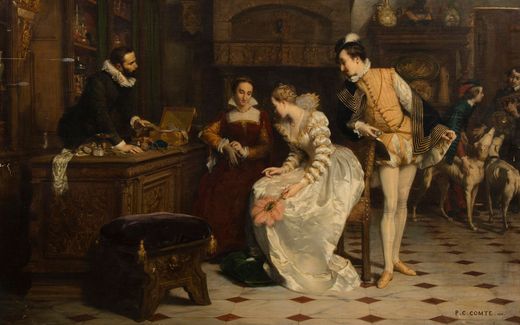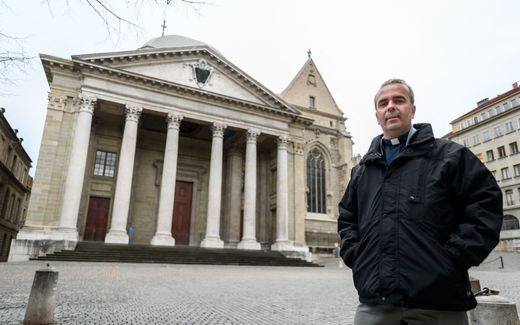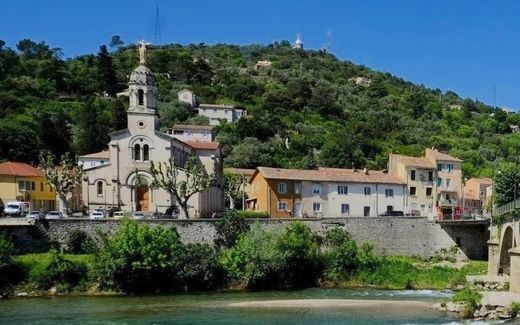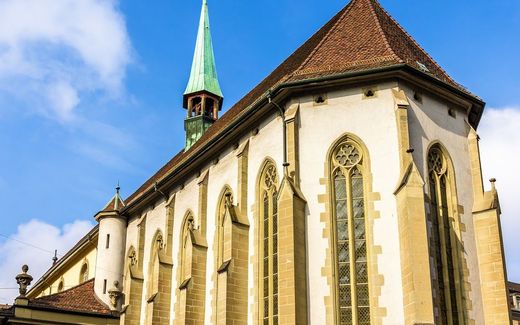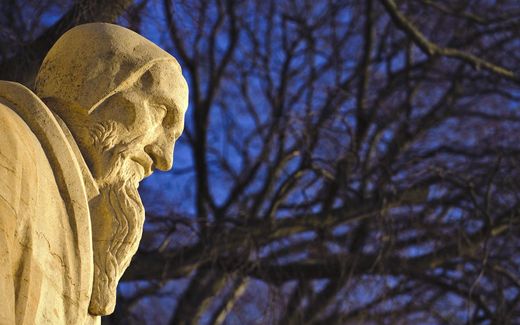Reformed faculty in France sees record of students at 50th anniversary
24-09-2024
Western Europe
Gerrit van Dijk, RD
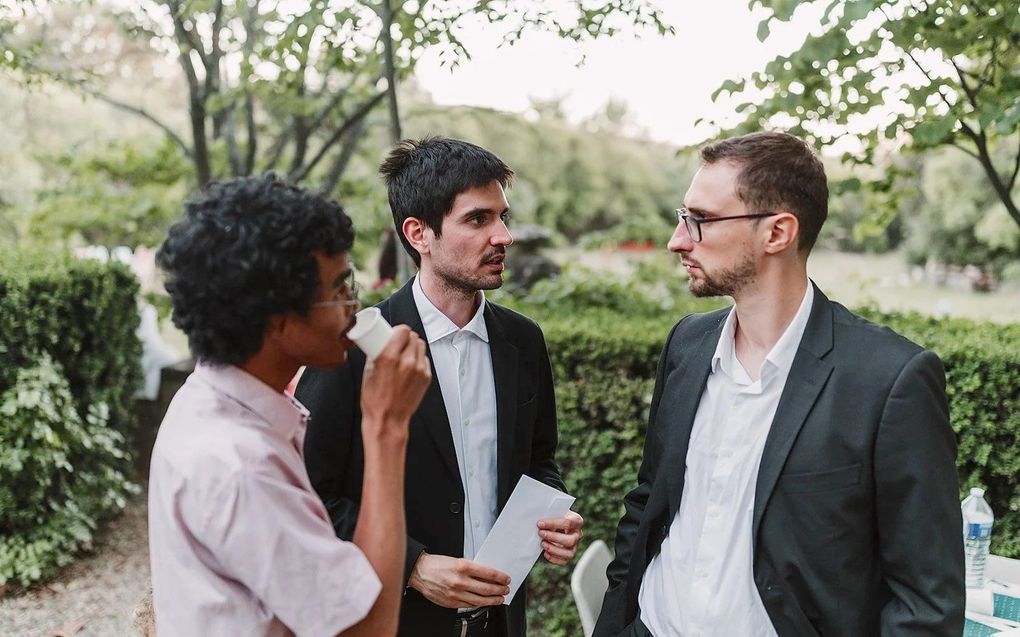
Students of the Reformed faculty in Aix-en-Provence. Photo FJC, Noémie Frechet
Western Europe
The Faculté Jean Calvin in Aix-en-Provence is Protestant as well as evangelical and, therefore, unique as a theological institution. The faculty forms church workers and pastors theologically, spiritually and practically based on Scripture and rooted in the Calvinist tradition with a direct openness to contemporary realities.
Receive CNE's weekly newsletter? Feel free to sign up here.
This is how the Faculté Jean Calvin in Aix-en-Provence presents itself on its website. The Faculté Jean Calvin (FJC) began in 1974 and celebrated its 50th anniversary last week. Various festivities took place on campus, with lectures by current and emeriti professors, as well as foreign guests.
When the faculty was founded in 1974, it was said to be "The last chance for France's languishing Calvinism," and now it is about the "last stronghold of French Calvinism." What makes this 50-year-old Jean Calvin faculty so unique?
"The uniqueness of the Faculté Jean Calvin can only be understood from French history and the French context," says prof. Jean-Philippe Bru, the FJC's current dean and professor of practical theology. "The word 'réformé' (reformed) here is associated with "liberal" and modernity. That is why we always add "évangélique" (evangelical) to "reformed." At the entrance it says “Institut de theologie protestante et évangélique.” In the 2009 Calvin year, the name Faculté Libre de Théologie Réformée (FLTR) was changed to Faculté Jean Calvin (FJC)."
Frenchman Jean-Philippe Bru (born in 1965) is a former student. When he experienced a calling to pastor after high school, his first thought was Montpellier. However, during an introductory day in the southern French city, a professor undermined the divine authority of Scripture, so Jean-Philippe chose the only solidly Reformed French theology school: Aix-en-Provence.
Jean-Philippe interrupted his studies and went to a Baptist church in Romania for four years as a missionary. Married to Romanian Dana, he returned to Aix and completed his pastoral training there in 2000, after which he served several congregations.
Jean-Philippe Bru, who never received his doctorate, became a professor of practical theology at FJC in 2012. He has been dean of the faculty since 2022.
What distinguishes the Faculté Jean Calvin from other seminaries?

Bru: "That is the combination of 'Protestant' and 'evangelical,' a happy marriage between Reformed and evangelical. I also like to speak of neo-evangelical and neo-Calvinist because Abraham Kuyper's idea that every square inch should be under the rule of Christ appeals to me. Because I am not a fundamentalist, I would prefer to call myself neo-evangelical because I am open to and want to be in conversation with contemporary French culture because I believe I also have answers for modern man."
As a dean, how do you lead the faculty?
"French Christians are used to living as a small minority in a highly secularised country. This is a situation comparable to that of the first Christians. The teaching of theology at the Jean Calvin Faculty will have to become even more demand-oriented by responding even more to the questions and needs of Christians and churches in a society that is increasingly pagan in character, as is evident in France.

The number of new registrations is encouragingly high. It is remarkable how many evangelical Christians come to the FJC precisely because they sense that the tradition of Reformed theology practice, in an updated form, provides answers to the deepest life questions of modern man. Many students also come from overseas (the former French colonies).
As dean, I do not have to watch over the Reformed character like a policeman. All teachers are convinced of that and teach from that denominational basis."
History
Dissatisfied with existing Protestant theological colleges in Montpellier, Paris and Strasbourg, two pastors and theologians, and Pierre Courthial, founded the Faculté Libre de Théologie Réformée (FLTR, Free Faculty of Reformed Theology) in October 1974.

Strictly speaking, this faculty was a relaunch of the Faculté Libre de Théologie Protestante (Free Faculty of Protestant Theology) in Aix-en-Provence, founded in 1940. This theological faculty, which had been founded by the then Églises Réformées Évangéliques Independantes (EREI) and which had no binding commitment to Reformed confessional writings, went into demise after five difficult years.
The FLTR, which did have the La Rochelle Creed as its foundation, was housed in the same building in Aix-en-Provence. This only French theological training with a Reformed character is not tied to a church, but it provided well-trained pastors for the Union Nationale des Églises Protestantes Reformées Évangéliques (Unepref), for example, and thus contributed to the revival of French Calvinism and the growth of the number of evangelical Protestants.
Students from evangelical and also charismatic backgrounds are increasingly coming to study at the FJC in Aix. Distance education is being expanded and further developed and meets a great need within the French-speaking world – especially in French-speaking Africa and in the overseas territories, the former French colonies.
For this year, a record number of new students enrolled: 34 for the undergraduate programme and 14 for the masters. The number of 48 new enrolments is unprecedented for the FJC.

In September 2024, the FJC has three full-time professors and one professor for 50 per cent, the Old Testament scholar Dr Gert Kwakkel from Utrecht Theological University (TUU). Twelve professors are associated with the FJC as guests or subject lecturers. The FJC now has 25 internal students and 95 students taking the theological course remotely. About a dozen take the lectures on Biblical foundations, and about 40 students participate in a sub-programme.
The FJC has official ties with foreign institutions, including TUU, with which a 'mutual recognition and partnership agreement' has been signed.
The FJC, which, like all French theological institutions, receives no state support, depends on foreign donors.
This article was translated by CNE.news and published by the Dutch daily Reformatorisch Dagblad on September 18, 2024
Related Articles

